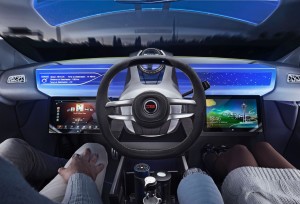At a June 29th Smart Commute Metro North transportation forum, hosted by Digital Globe in Westminster, Rutt Bridges, author of “Driverless Car Revolution; buy mobility, not metal,” gave a presentation. He updated the audience on the advances being made by proponents of driverless cars. His research was excellent and his exploration of how driverless will be integrated into society was very thorough and thoughtful. The problem is his list of victims that he acknowledged will be run-over. He didn’t have any tears for the victims. It appeared he was  looking forward to running some of them down. While not directly named, I felt I was on the list of victims. You are on the list too.
looking forward to running some of them down. While not directly named, I felt I was on the list of victims. You are on the list too.
I look forward to driverless cars. If the price was right, I would buy one right now. A colleague of mine on the Westminster City Council and I have engaged in a friendly back and forth with each other about driverless cars. Our council has been reducing the required parking for developments built in Westminster. I have opposed these reductions. I think driverless cars will increase the number of cars in Westminster. My colleague thinks there will be a reduction in cars in the “sharing economy of the future.”
A reduction in the number of cars and traffic congestion is what Mr. Bridges sees. A reduction in the number of cars and traffic congestion is what Smart Commute is striving to accomplish. I would love to see traffic congestion reduced, but I don’t like the pathway they advocate.
Mr. Bridges’ pathway to reducing traffic congestion consists of electric, self-driving taxis with 24/7 availability, that would constantly shuttle from one group of passengers to the next. According to the plan, not only would these taxis reduce parking needs, they would provide a solution to the “first mile/last mile” problem (the time, cost and inconvenience of getting to and from mass transit). The inherent economies of electric vehicles would provide a more efficient use of government transportation subsidies. With reduced vehicles counts, the huge public capital investment for road capacity could be redirected. Increasing the density of residential areas would increase productivity and increase pedestrians. An over-arching, “Uber-like”, smart chip enabled communication and management system for the electric taxis that anticipates, authorizes and allocates vehicles, ride sharing and road-space would manage demand. An omni-present, pervasive monitoring and security system would insure client safety.
Mr. Bridges was upfront about the negative impact that these changes would have. He spoke of them being “disruptive technologies”. He acknowledged that segments of the economy that would face transformation, reduction or even demise. With the longer service life and shared use of electric vehicles, auto manufacturers would dramatically shrink. Auto dealers may no longer be needed. Big Oil would lose millions of customers.
![]() This all may very well come about in a driverless car future built on choice and markets, with people freely making decisions about how and where they want to live, work and commute. That would be the dynamic force of the free market at work.
This all may very well come about in a driverless car future built on choice and markets, with people freely making decisions about how and where they want to live, work and commute. That would be the dynamic force of the free market at work.
For Mr. Bridges, its part of a master plan.
I see many other victims. Mr. Bridges’ vision of the future has no room for the suburbs. Our suburbs are dependent on privately owned, independently operated, no time-table or permission required cars driven on freely accessed public roads. So I see homeownership at risk. I see real estate agents, mortgage companies and home improvement companies at risk. I see our de-centralized, residential, retail, business and manufacturing free market society at risk. I see our rural and farming citizens excluded. Forget about a camping trip to that isolated spot. Outdoor recreation will become an efficient, monitored, safe, group activity. Non-smart vehicles may face “Driving Only on Sunday” or other restrictions.
Rather than acquiescing to a command-and-control future that others are planning, we must join the discussion and advocate instead for the future we want.
First, understand what is happening. Driverless cars are coming to market very quickly. We can be the master of driverless cars or a victim of driverless cars.
Participate and become part of the discussion. We need to advocate of the sales of driverless cars to individual owners; support systems that allow every vehicle, smart or dumb, to share the roads and have vehicles that can operate in rural areas. We must be willing to pay the cost of our freely accessed public roads.
And finally, join with others. One person can be dismissed as a nut. A few people are a protest. Hundreds of people demand attention. Thousands of people decide the future.
Bruce Baker is a Westminster, Colorado City Council Member.


